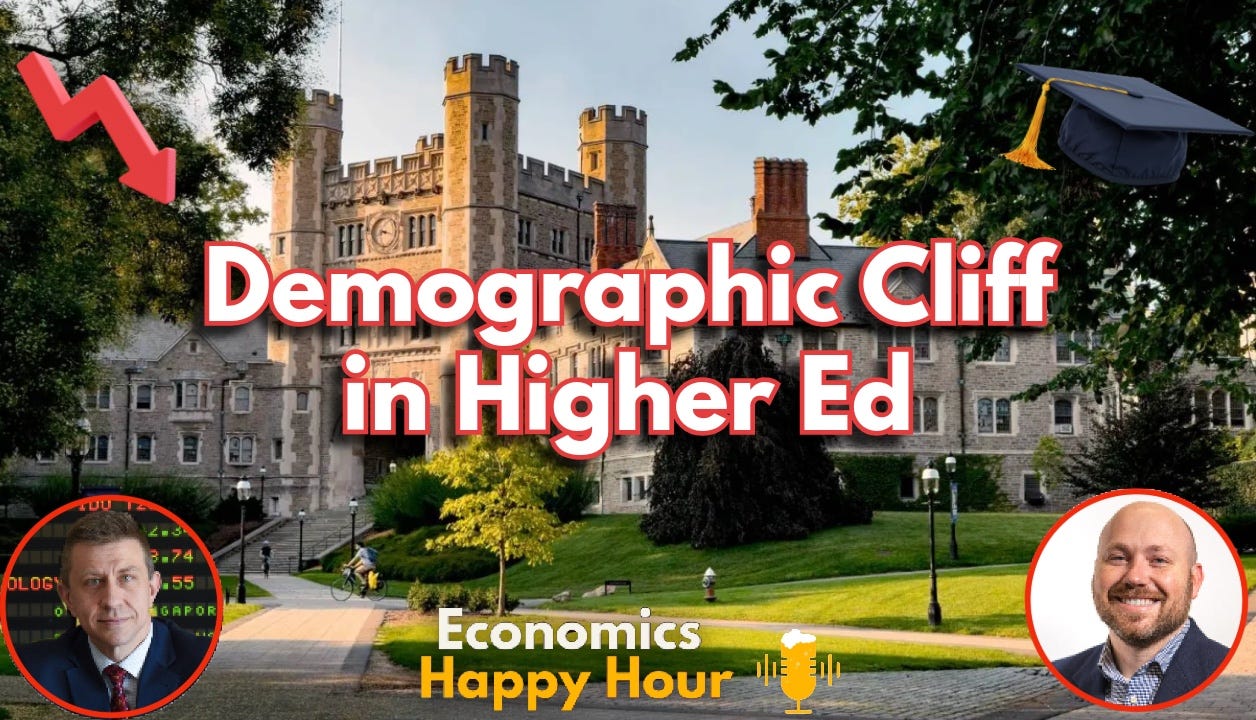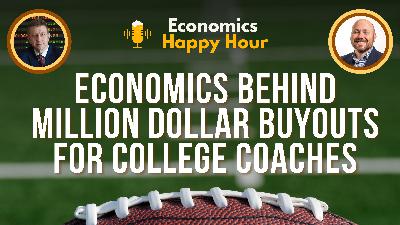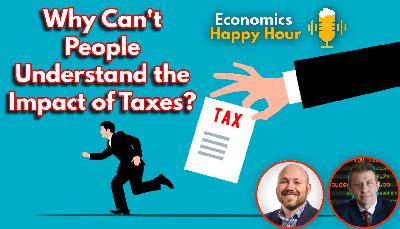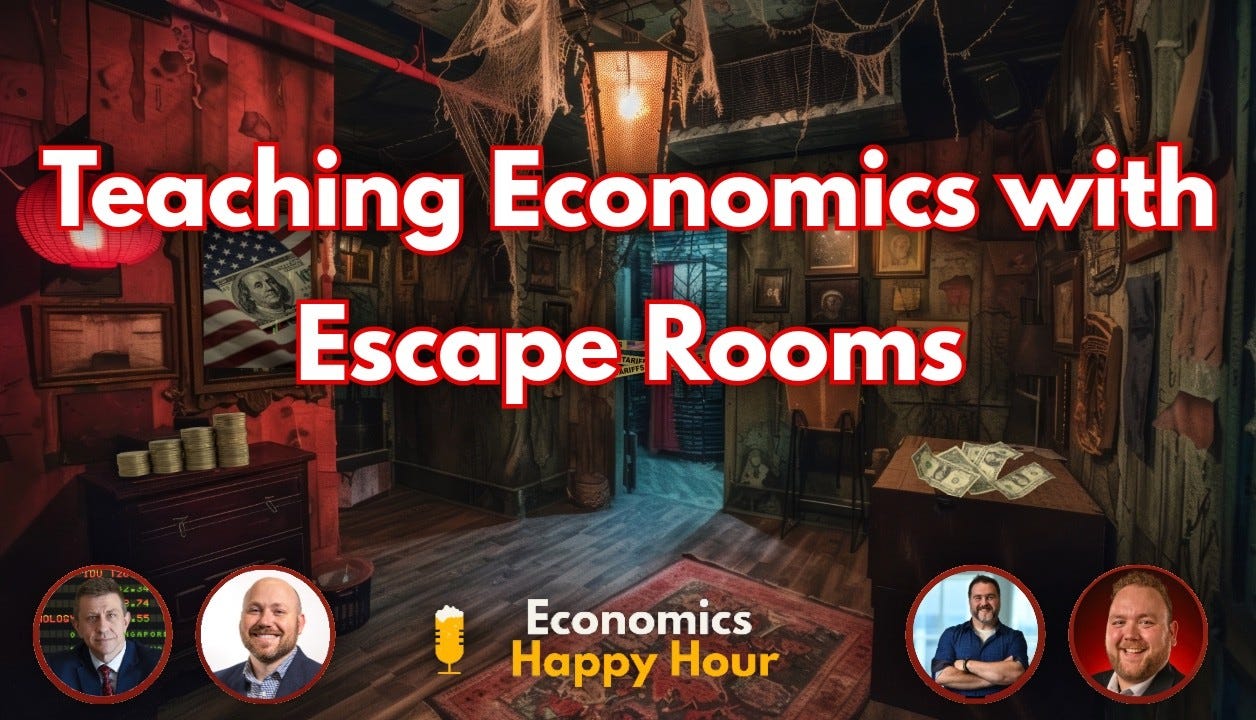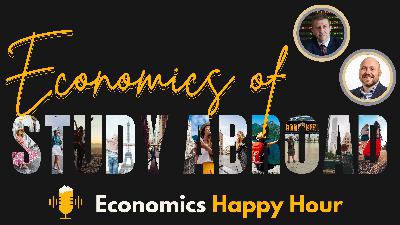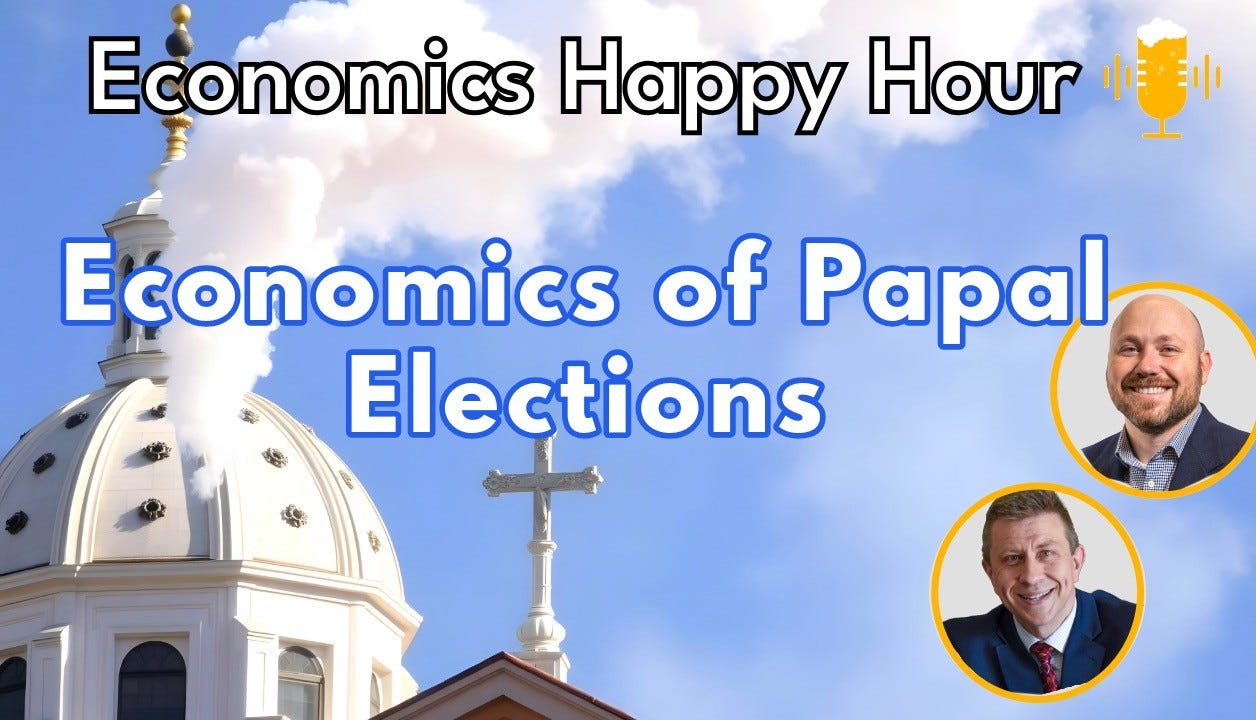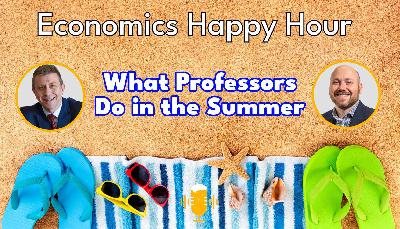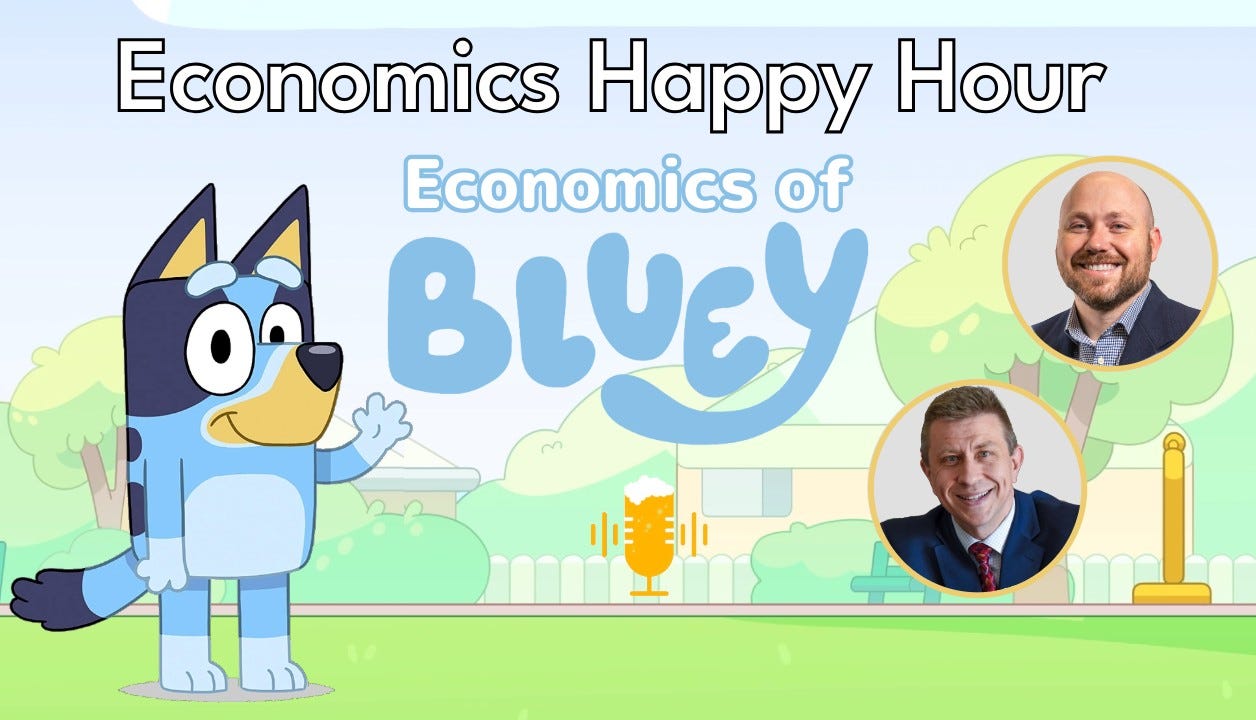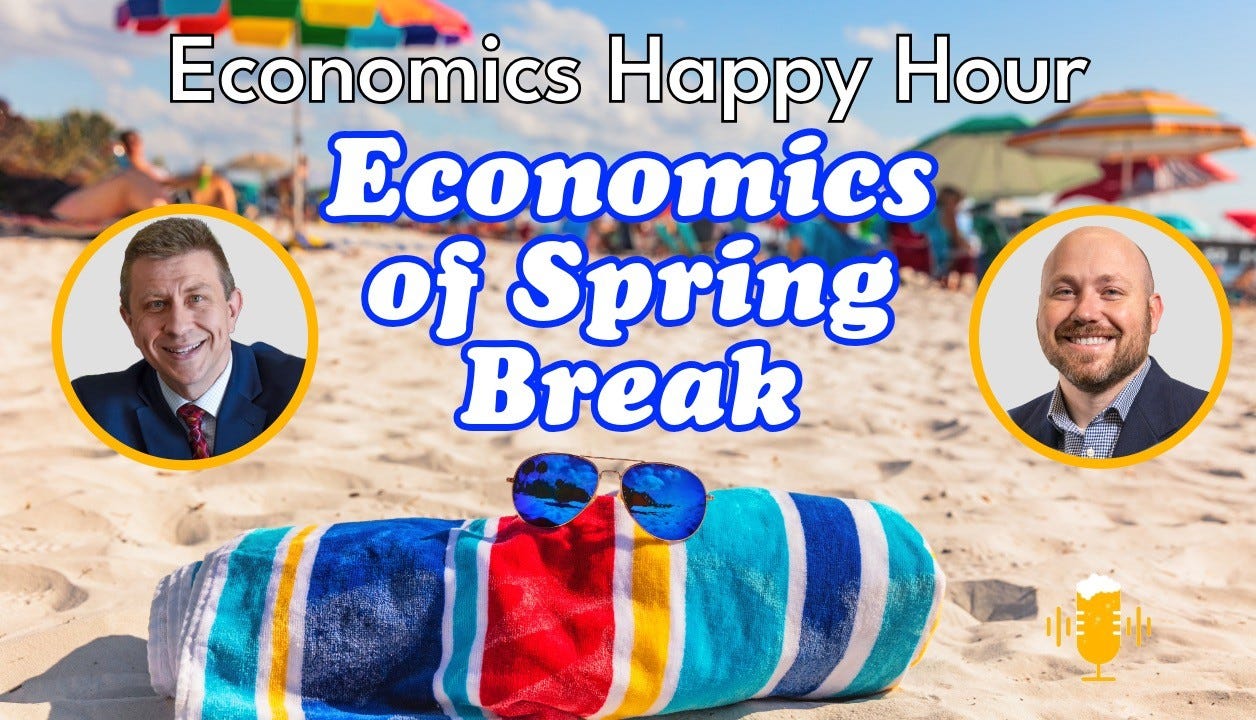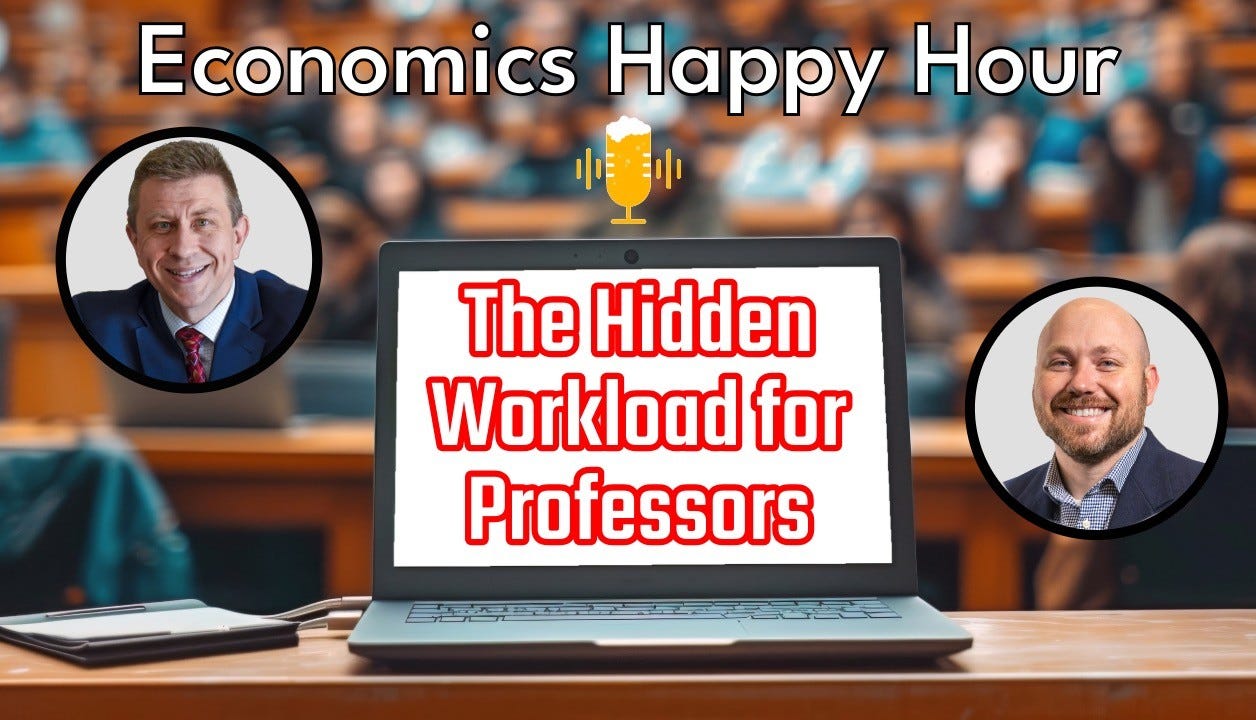The Demographic Cliff in Higher Education
Description
We explore what the looming demographic cliff means for colleges and universities. As the number of high school graduates begins to shrink, institutions are grappling with how to adapt, especially smaller and regional schools. We discuss which types of schools are most vulnerable and why elite and flagship universities may be somewhat insulated from the effects. We also look at the structural and financial implications this demographic shift brings to the future of higher ed.
In this episode, we discuss:
* What the demographic cliff is and where it came from
* Why the decline in high school graduates is hitting some schools harder than others
* How large research universities are expanding while smaller schools struggle
* The uneven distribution of enrollment pressure across higher education
* Mergers, closures, and financial strategies schools are using to survive
* Long-term risks for access and affordability in college education
* And a whole lot more!
Catch up on some old episodes:
You can also listen to us on Google Podcasts, TuneIn Radio, and Apple Podcasts. If one of these is your go-to podcast service, be sure to rate us and subscribe!
Watch this episode on YouTube:
Some show notes:
It’s still early in the term, but Matt and Jadrian have been hard at work with the latest batch of students. There’s some controversy at Susquehanna, so it’s a perfect time for a drink. Matt went with a One to One Hazy IPA from Hitchhiker Brewing featuring Mosaic and Simcoe hops, while Jadrian opted for a lighter Watermelon Ranch Water hard seltzer from Karbach Brewing in Houston.
This week’s episode centers on the demographic cliff: an anticipated drop in the number of college-age students due to declining birth rates after the Great Recession. Why does this matter? Although high school graduation rates haven’t dropped, the number of graduates will fall by as much as 12–15% over just a few years. That creates significant pressure on colleges that rely on a steady pipeline of new students for financial sustainability.
While we often talk about the enrollment cliff as affecting higher education as a whole, this shift won’t impact all colleges equally. Large research universities and highly-ranked liberal arts colleges are more insulated, often continuing to grow or maintain enrollment. Smaller private schools, regional public universities, and lesser-known liberal arts colleges are already seeing financial strain, leading to campus closures and mergers. Examples like the creation of PennWest and branch campus closures at Penn State illustrate how some schools are consolidating to survive.
This is more than a numbers game. The drop in prospective students also means fiercer competition, with many institutions increasing aid offers to fill seats. This forces schools to discount tuition more heavily, squeezing budgets even further. And while some schools expand dorms and programs to attract top-tier students, others face hard questions about long-term viability.
We round out our discussion with concerns about what this means for educational access, especially for students in rural areas or from low-income backgrounds. If regional colleges disappear, students may lose the ability to attend college close to home, risking broader educational and social implications.
This week’s pop culture references:
This isn’t really a pop culture–friendly topic, but we had a few moments worth noting. Matt went with a classic quote from Animal House with Brother Bluto’s deadpan line: “Seven years of college down the drain.” It’s a fitting clip for an episode focused on the future (and fragility) of college as an institution.
This was a reading-heavy segment, fueled by our own curiosity about the future of higher ed. Matt has been diving into Let Colleges Fail, a provocative book that compares the failure rate of colleges to public companies and argues that society might benefit if more struggling schools were allowed to close.
Jadrian recently picked up Hacking College, which focuses on how universities can better prepare students for life after graduation. It looks at structural and practical changes that could make higher ed more relevant and responsive to student needs.
This is a public episode. If you would like to discuss this with other subscribers or get access to bonus episodes, visit econhappyhour.substack.com

